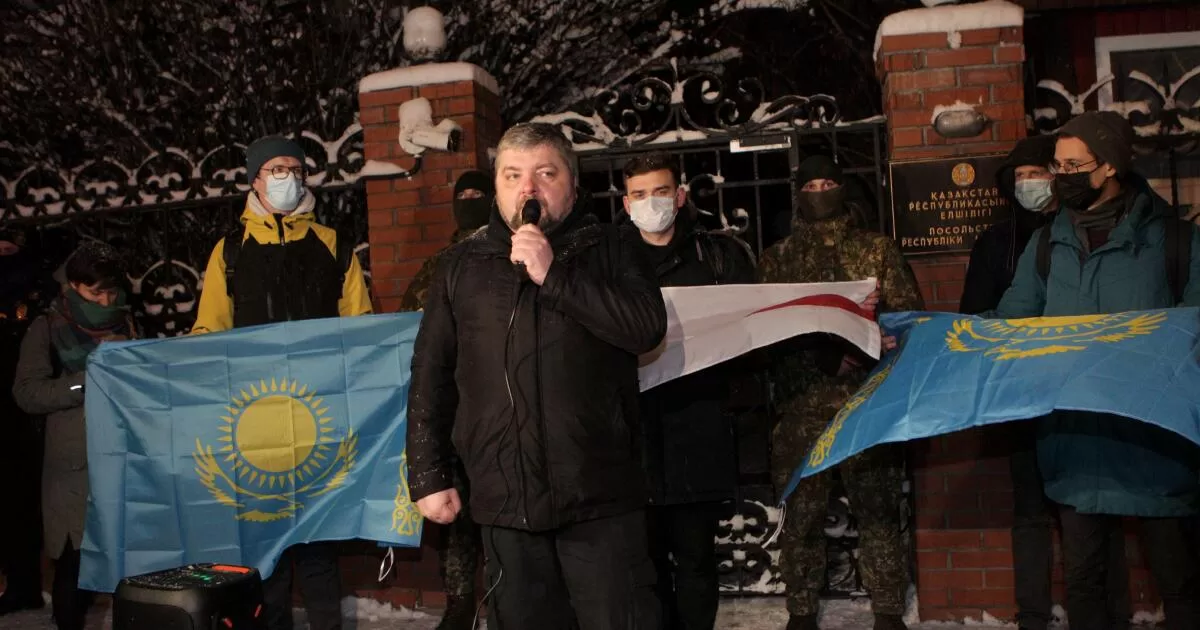Maksym is a defender of Ukraine and prisoner of war who has been held by Russian forces since 2022. There has been no word from Max since August, months before Johnson became speaker.
I do not know how much news penetrates his jail cell. Do his captors taunt him with stories about Johnson of Louisiana and his fellow House Republicans abandoning Maksym and Ukraine to the brutality of Russian invaders?
Polls show a solid majority of Americans still support financial and military aid for Ukraine in defending itself against Russia’s illegal aggression. Providing such support accords with our values, boosts our economy and contributes to our security without risking American lives.
But Johnson’s Republicans have let the aid run out, obstructing a $60-billion request from the White House just as Russian forces have stepped up their criminal attacks on Ukrainian civilians.
If only Mike Johnson knew Maksym Butkevych. As an avowed man of faith and patriotism, Johnson might even be inspired by him. Max has long exhibited uncommon courage in standing up for the unalienable rights we Americans purport to uphold.
Max started taking on the Soviet regime at 13. In 1990, he joined university students who went on a mass hunger strike for rights and autonomy in the Soviet Union. It was Ukraine’s “Revolution on Granite,” an overlooked precursor to the Orange Revolution of 2004-05 and the Revolution of Dignity (or Maidan Revolution) of 2013-14. Addressing thousands gathered on Kyiv’s central square, young Max took up a microphone and called for Ukrainian independence, shouting a phrase now known around the world: “Slava Ukraini!”: Glory to Ukraine!
After Ukraine won its independence, Max embarked on a career as a journalist committed to exposing post-Soviet corruption and covering the poor and marginalized. He went on to work as an advocate for those he had reported on: refugees, displaced people, members of Ukraine’s LGBTQ+ community. His indiscriminate, inexhaustible compassion was recently honored with the 2023 Anne Frank Special Recognition Award, which his father, Oleksandr, accepted in his stead.
When Russia invaded Crimea and eastern Ukraine in 2014, forcing thousands of Ukrainians from their homes, Max helped unite citizens from different regions of the country, calling for “a transparent, non-corrupt system of government for the benefit of all, without regard to their origin and political opinion.” When Russia tortured and jailed Ukrainian activists in occupied territory, Max tirelessly petitioned for their release around the world.
Then came Russia’s full-scale invasion in February 2022. Max was widely known as a pacifist, but he wasted no time joining Ukraine’s armed forces. Many of us who knew him thought he would rather assist the millions of Ukrainians who had suddenly become refugees because of Russian brutality. But his swift decision to take up arms was a warning to us all.
Max understood something that many of us fail to grasp even after two years of Russia’s full-scale war. He knew that this kind of wanton, unprovoked aggression can’t be managed, negotiated or wished away from a distance. It must be fought head-on before it spreads.
“I have to put my humanitarian work and human rights activism on hold,” Max said after enlisting. “There are times when you have to be ready to defend what is important. Everything else comes after victory.”
Max is sacrificing everything for the ideals of freedom and equality that America cherishes. Johnson and his Republicans should be calling for his release and doing everything in their power to aid his people and enable their victory. Instead, they’re stonewalling bipartisan legislation that most Americans support and enabling an aggressor state that openly fantasizes about our division and destruction.
I wonder whether my friend Maksym Butkevych knows the name of House Speaker Mike Johnson. And I wonder whether Max sees us, in the land of the free and the home of the brave, hanging our heads in shame.
Rory Finnin is a professor of Ukrainian studies at the University of Cambridge and the author of “Blood of Others: Stalin’s Crimean Atrocity and the Poetics of Solidarity.”
